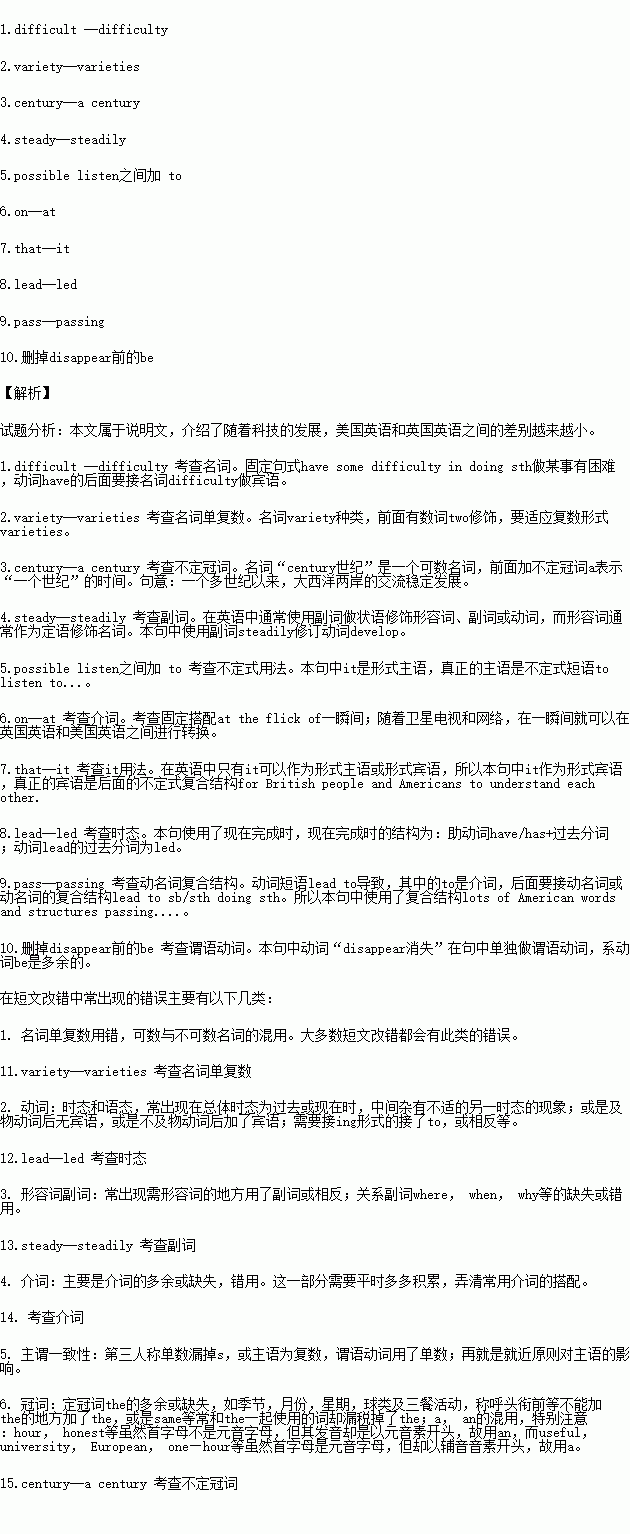ĢāÄæÄŚČŻ
¶ĢĪÄøÄ“ķ
¼Ł¶ØÓ¢ÓļæĪÉĻĄĻŹ¦ŅŖĒóĶ¬×ĄÖ®¼ä½»»»ŠŽøÄ×÷ĪÄ£¬ĒėÄ抎øÄÄćĶ¬×ĄŠ“µÄŅŌĻĀ×÷ĪÄ”£×÷ĪÄÖŠ¹²ÓŠ10“¦ÓļŃŌ“ķĪó£¬Ćæ¾äÖŠ×ī¶ąÓŠĮ½“¦”£Ć擦“ķĪó½öÉę¼°Ņ»øöµ„“ŹµÄŌö¼Ó”¢É¾³ż»ņŠŽøÄ”£
Ōö¼Ó£ŗŌŚČ±“Ź“¦¼ÓŅ»øöĀ©×Ó·ūŗţؔģ©²¢ŌŚĘäĻĀĆꊓ³öøĆ¼ÓµÄ“Ź”£
ɾ³ż£ŗŌŚ“ķµÄ“ŹĻĀ»®Ņ»ŗįĻߣ¬²¢ŌŚøĆ“ŹĻĀĆꊓ³öŠŽøÄŗóµÄ“Ź”£
×¢Ņā£ŗ1.Ć擦“ķĪó¼°Ę䊎øľł½öĻŽŅ»“Ź£»
2.Ö»ŌŹŠķŠŽøÄ10“¦£¬¶ąÕߣؓӵŚ11“¦Ęš£©²»¼Ę·Ö”£
Though British people sometimes have a little difficult understanding Americans, some experts believe that the two variety are moving closer together. For more than century communications across the Atlantic have developed steady. Since the 1980s, with satellite TV and the internet, it has been possible listen to British and American English on the flick of a switch. This non-stop communication has made that easier for British people and Americans to understand each other. But it has also lead to lots of American words and structures pass into British English, so that some people now believe that British English will be disappear.

